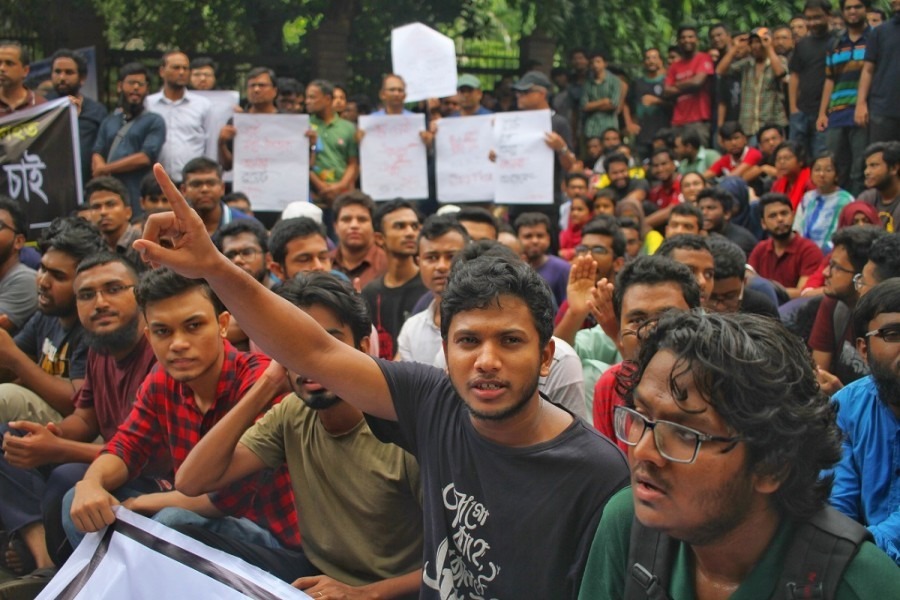
Published :
Updated :

The atmosphere at Dhaka University is charged with anticipation as the long-stalled DUCSU election draws near. This is a development that carries significance far beyond campus walls. Coming in the wake of last year's July Uprising which shook the nation's political order, the election stands as one of the uprising's most tangible legacies. After years of silence, students will at last be able to choose their representatives, offering hope that campus politics can move away from domination and violence toward accountability and inclusion.
For too long, the absence of a functioning student union at DU has allowed the worst forms of political influence to dominate campus life. A culture of fear and impunity took hold where muscle power stifled student voices and dictated the terms of student affairs. The last DUCSU election in 2019 was marred by rampant irregularities and violence, though the victories of candidates like Nurul Haque Nur and Akhtar Hossain stood out as milestones for student activism. Still, widespread dissatisfaction with other contested results left the union dysfunctional. Since then, no election has been held that left DU students without a legitimate platform to voice their concerns. As history shows, when such a platform is absent, the university risks becoming a place of fear rather than free thought. The classroom experience, vital as it is, remains incomplete without the complementary lessons in leadership, negotiation and civic responsibility that a vibrant student union provides. The current election, therefore, offers an opportunity to reverse this decline. But for DUCSU to be truly relevant, its leadership must prioritise the real issues shaping student life. If it merely becomes an echo chamber of national politics, parroting slogans instead of solving student problems, it will only deepen the sense of stagnation and disillusionment.
Against this backdrop, the upcoming election carries not only the promise of restoring representation but also of breaking new ground. That spirit of renewal is most visible in the unprecedented participation of female candidates in key leadership positions. In the six decades since the last female vice president was elected, women have been virtually absent from the union's top ranks. Now, for the first time in generations, female candidates are contesting not only for the positions of vice president but also for general secretary and assistant general secretary, alongside a range of other posts. Many of these contenders emerged from the quota reform movement and the July Uprising, carrying with them the promise of a more inclusive and representative politics. Far from being merely symbolic, this development has the potential to reshape leadership pipelines and prepare women for greater roles in national politics beginning in their student years. What remains crucial is to safeguard this shift from the corrosive practices that have long discredited student politics.
For this election to truly realise its transformative potential, it must be conducted with integrity, transparency and an unwavering commitment to fair play. The university administration bears the primary responsibility for ensuring a level playing field for all candidates, keeping campaigning peaceful, and guaranteeing that voting takes place free of coercion or malpractice. Political parties, which have historically influenced and often corrupted student politics, must take a step back and allow students to choose their representatives freely. Candidates and their supporters must also remember that they are students first and political activists second. Their conduct will determine whether DUCSU re-emerges as a credible institution or sinks back into irrelevance. Ultimately, the success of this election will be judged not by who wins, but by whether it sparks lasting positive change in campus culture and restores the union's role as a genuine platform for student voices.


 For all latest news, follow The Financial Express Google News channel.
For all latest news, follow The Financial Express Google News channel.